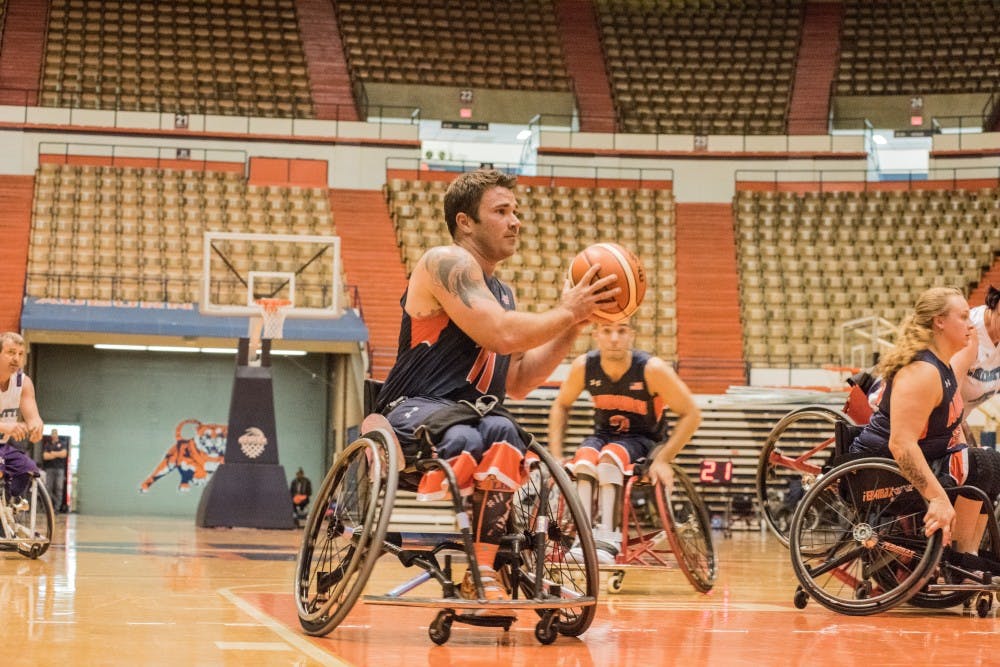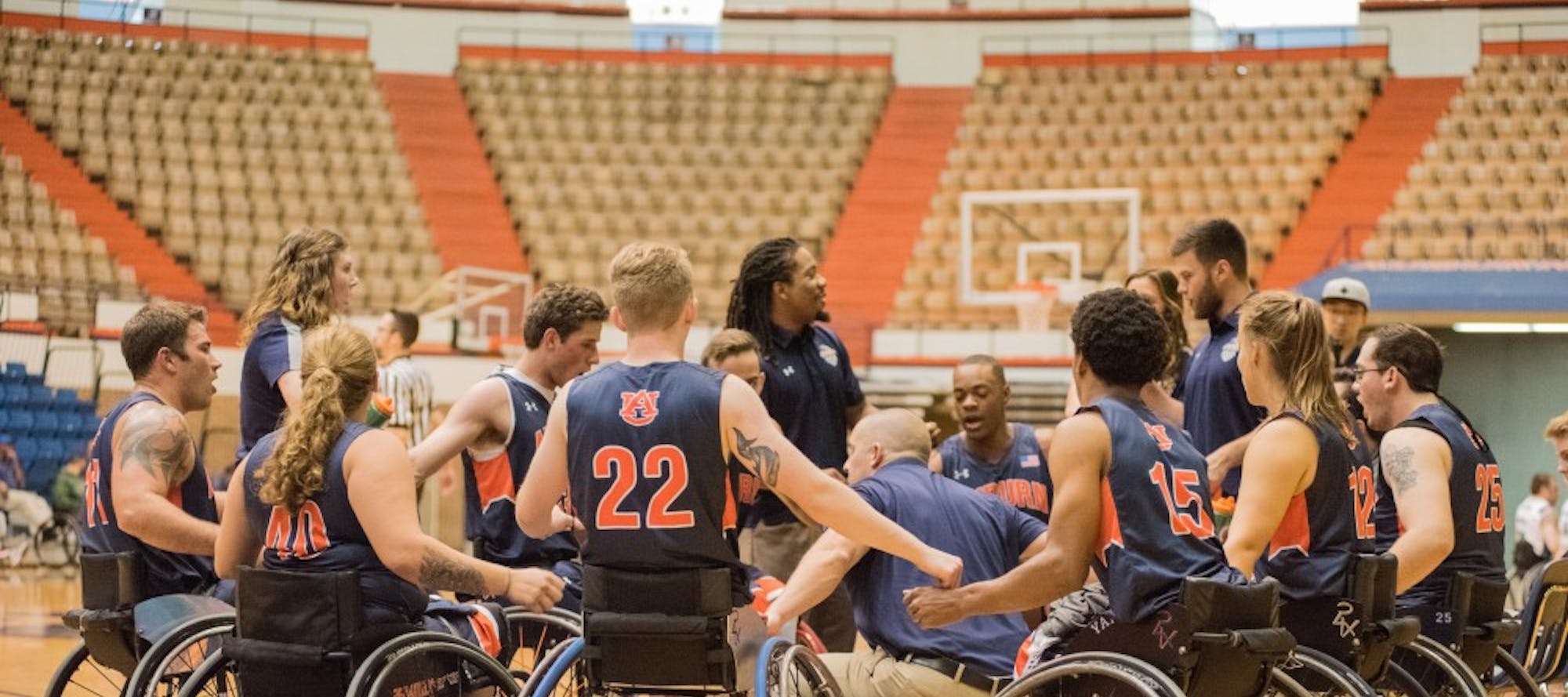Get to know Auburn's Wheelchair Basketball team
To most students, the Coliseum holds a few classes and a lot of labs, but otherwise goes unused. For ten student athletes, it is home court and where they put in hours of work to establish themselves on the national stage. The Auburn Wheelchair Basketball team has their eyes set on winning a lot of games this year, especially against the University of Alabama. Unlike the classic Iron Bowl though, Auburn’s team faces more challenges off the court than on it. This is only the second year that Auburn Wheelchair Basketball has been recognized as a collegiate team by the National Wheelchair Basketball Association. In order to receive collegiate classification, only students are allowed to play, and they must maintain a certain GPA. In previous years, Auburn has been a community team. Community teams allow members of the community to participate but prevent teams from qualifying for collegiate level tournaments. The transition to collegiate level was possible thanks to the years spent cultivating talent and a recruiting a sufficient roster. Even now, the team consists of only ten players, including two women and a graduate student. Because roster size impacts many collegiate wheelchair basketball teams, co-ed teams are common among newer programs. Most powerhouse teams have both men’s and women’s programs, something that junior co-captain Ranley Clayton hopes for in the future of Auburn Wheelchair Basketball.
Ranley began using a wheelchair after an accident four years ago. A former high school basketball player, she started playing wheelchair basketball soon after her recovery and quickly gained recognition as a standout athlete. She has been trained by the US Men’s team assistant coach for several years and attended the Women’s team tryouts last year. She is currently training to try out for Team USA again, with the goal of competing in the 2020 Paralympics. When asked about her team, Ranley describes the dynamic as “unique”; everyone has “different experience levels and backgrounds”. The team recognizes the importance of the foundation they are setting for the future of Auburn’s wheelchair basketball program and always motivate each other to further the program.
Graduate student Blake Loftin is another instrumental part of the team. His journey with wheelchair basketball began when he was a teenager; after being in a serious boating accident, Blake was unable to continue playing baseball or football, the sports that he devoted his childhood to and saw a future in. Not wanting to lose athletics or competition completely, Blake pursued wheelchair basketball. He describes the sport as being the “premiere” adapted sport, so he decided to get involved. After playing on community teams, Blake became the first male wheelchair basketball player to ever be recruited and receive an athletic scholarship for the University of Alabama. Blake and some former teammates from his high school varsity division established Alabama’s team over the three years that Blake was a student. He left the University after struggling academically and spent time in jail and rehabilitation. After being away from the sport for several years, Blake was approached by a former high school teammate. The teammate was at Auburn assisting with a community wheelchair basketball program and was interested in having Blake join the team and establish Auburn in the collegiate division. Since Blake came to Auburn, the team has developed quickly. Now, the team can be found at early morning practice in the Coliseum and promoting themselves around Auburn.

Photo: Lauren Talkington
The Auburn Wheelchair Basketball team faces a few challenges that other organized sports don’t have to take into consideration. Because of Auburn’s location, competing on the national stage is difficult. In order to stay competitive, the team participates in tournaments, which involve playing multiple games per day over a weekend. Because there are so few teams nearby, Auburn’s team will travel all over the country this season, including driving to a tournament in Texas. Sponsored by the Office of Accessibility, and not Auburn Athletics, the Wheelchair Basketball team also faces financial challenges. Unlike student organizations or Athletics, the team gets by on fundraisers and private donations. Blake Loftin explains that the team is grateful to have their own trainer and supporters; finances are just one more challenge that they continue to meet and overcome.
Obstacles aside, the Auburn Wheelchair Basketball team is proud of their developing roster. The team represents a wide spectrum of disability, from athletes who are nearly able-bodied to those who are paralyzed just below the arms. Loftin describes having a different dynamic from other teams because of the variance among athletes. He says defying the “new kid on the block” stereotype also drives the team to be the best they can. Loftin is adamant that by March, when the team faces reigning national champion Alabama in their own Iron Bowl, they’ll be ready.
To support the Auburn Wheelchair Basketball team, you can attend their home tournament January 25-26 and visit their website here.


